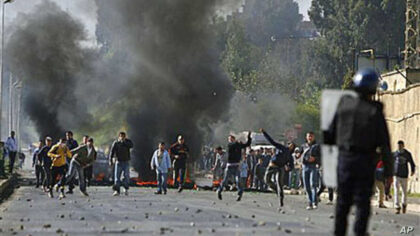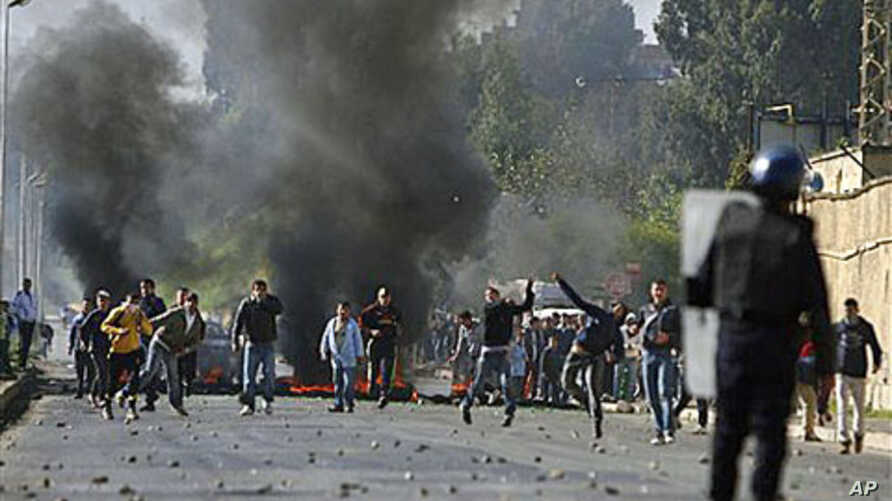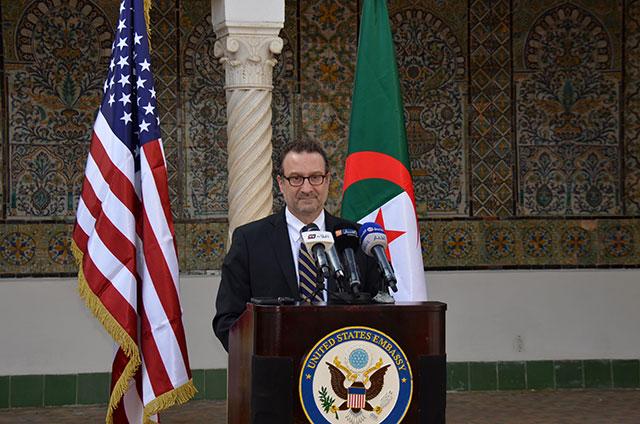 Oil and gas rich southern Algeria has in recent years been boiling with a spate of protests that often turn violent such as the recent protests in the Touareg city of Tin-Zaouatin where a man has been killed by live fire.
Oil and gas rich southern Algeria has in recent years been boiling with a spate of protests that often turn violent such as the recent protests in the Touareg city of Tin-Zaouatin where a man has been killed by live fire.
Protests in Tin Zaouatin, near the borders with Mali, erupted after Algerian authorities imposed a siege on the population preventing them from access to a water spring, their only source of water.
After the bloody demonstration in Tin-Zaouatin, the inhabitants of other southern localities, including Bordj Badji Mokhtar, denounced their permanent marginalization.
The residents not only denounced the murder of a protester in the nearby town of Tin-Zaouatin by the army, but also the neglect they have suffered since independence.
Algerian independent media is awash with the grievances of the people of the southern province of Tamanrasset, home to Tin Zaouatin, who denounce among others a lack of basic infrastructure: unpaved roads, precarious housing, absence of certain vital amenities, such as water supply…
They complain of a discrimination by the central authority in Algiers, 2700 kilometers away, against the people of the south whom security services assume they are all working in contraband.
The locals staged the protests because they were fed up with the siege imposed by the Algerian security services in a blind-folded security approach that takes no account of development requirements in a region forsaken for decades by the regime in Algiers.
These localities have lived for millennia thanks to two sources of income: transhumant livestock farming and trans-Saharan trade. However, the insecurity situation in the great Sahara and the Sahel maintained by Algiers compromises transhumance and trade routes, either by the terrorists roaming in the region or by the walls and other barriers erected by the army.
Actually, the revolt of the Tin-Zaouatin populations came to denounce the barbed wire preventing them from having access to the only river in the area serving them as a drinking water source.
Restive south
Algeria as a state has no antecedent in history and its current borders have been inherited from the colonial arbitrary borders, which have divided the Touareg nation between many African countries.
When autonomy was proposed for the Touareg’s in Mali to settle the uprising in 2013, Algiers opposed the idea in fear of a spill over. Algeria, as a centralized state, dreads the awakening of its Touareg population to demand self-determination, a principle, which Algeria has often used to unsettle Morocco.
In addition to the province of Tamanrasset, the restive Algerian southern towns of Ouargla and Laghouat have been rocked by violent clashes between security forces and protesters who accuse the government of robbing the gas wealth and investing in the north while leaving their provinces poor and underdeveloped.
The city of Ghardaia, also in the south, has been rocked by clashes due to a regime legacy of discrimination against the Amazigh locals.
The Algerian south is also a safe haven for cross border criminality, terrorism and traffickers.
Porous borders and regime connivance with some armed groups have amplified security threats for Algeria’s neighbors in the Sahel who complain of Algeria’s hegemonic aims and its ambiguity in fighting terrorism.



